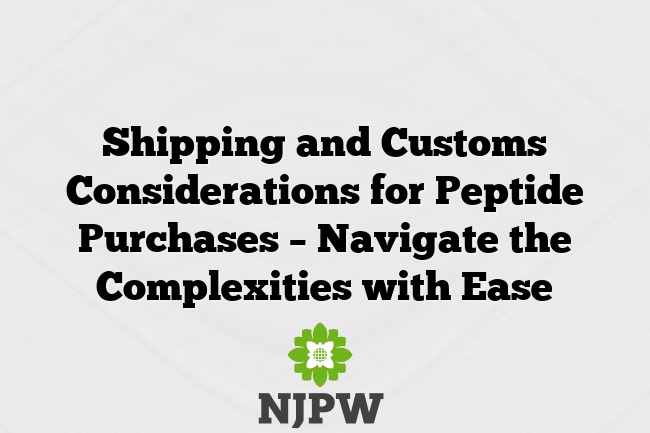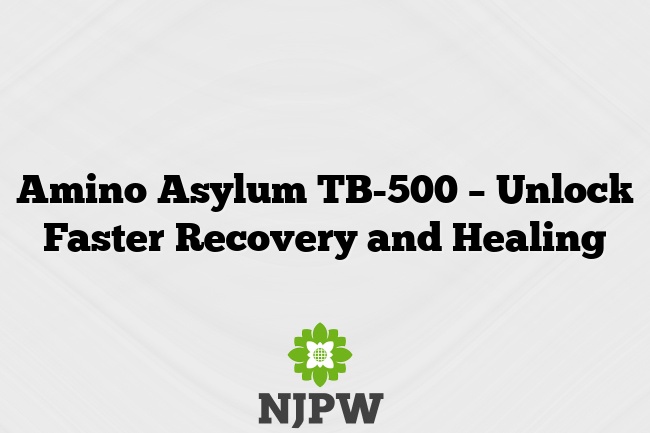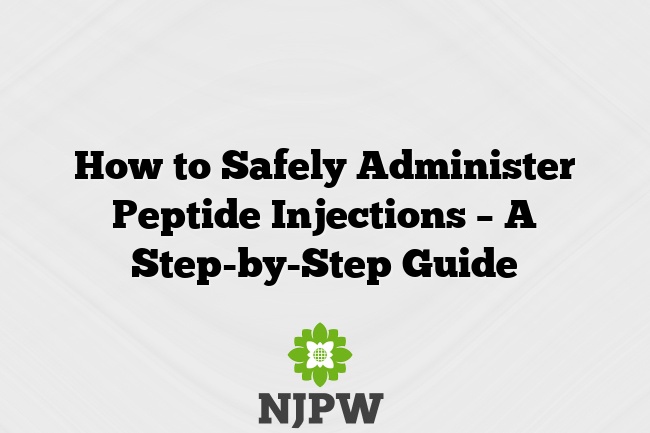Shipping and Customs Considerations for Peptide Purchases – Navigate the Complexities with Ease

Navigating the complexities of shipping and customs when purchasing peptides can be a daunting task, but with the right information and guidance, the process can be smooth and efficient. Whether you’re a seasoned peptide enthusiast or new to the world of these specialized compounds, understanding the regulations and best practices is crucial to ensuring your purchases arrive safely and on time.
| Key Considerations | Overview |
|---|---|
| Shipping Regulations | Peptides are often subject to specific shipping requirements, such as temperature control, hazardous material handling, and documentation. Familiarizing yourself with these guidelines is essential to avoid delays or issues during transit. |
| Customs Clearance | Navigating the customs clearance process can be a challenge, but with the right preparation and documentation, you can minimize the risk of delays or complications. Understanding the necessary paperwork and procedures is key to a successful international peptide purchase. |
| Integrity Protection | Ensuring the integrity of your peptide compounds during shipping is crucial to maintaining their effectiveness and quality. Proper packaging, handling, and temperature control are essential to safeguarding your investment. |
What are Peptides?
Peptides are short chains of amino acids that play a vital role in various biological processes within the human body. These compounds are often used in research, sports performance, and therapeutic applications due to their ability to influence specific physiological functions. Peptides can be derived from natural sources or synthetically produced, and their versatility has made them an increasingly popular subject of scientific inquiry and clinical investigation.
Understanding Shipping Regulations for Peptides
Shipping peptides requires careful consideration of the applicable regulations and guidelines. These compounds are often classified as hazardous materials due to their potential for temperature sensitivity, fragility, or specific handling requirements. Proper packaging, labeling, and documentation are essential to ensure your peptide shipments comply with the rules and regulations set forth by regulatory bodies, such as the United States Department of Transportation (DOT) and the International Air Transport Association (IATA).
Factors to consider when shipping peptides include temperature control, secondary containment, and the use of insulated packaging or cold chain logistics. Depending on the specific peptide compound, you may also need to adhere to regulations regarding the transportation of hazardous materials or controlled substances. Failing to comply with these requirements can result in delays, fines, or even the seizure of your shipment.
Navigating Customs Clearance Procedures
International peptide purchases often require navigating the complexities of customs clearance. This process involves submitting the appropriate documentation, such as commercial invoices, packing lists, and certificates of analysis, to ensure your shipment is properly classified and evaluated by customs authorities.
Depending on the destination country, you may also need to obtain import permits or licenses for certain peptide compounds. Failure to provide the necessary paperwork or comply with customs regulations can lead to delays, additional fees, or even the rejection of your shipment.
To streamline the customs clearance process, it’s essential to work closely with your peptide supplier or a reputable customs brokerage service. These professionals can guide you through the required procedures, helping to ensure your shipment clears customs efficiently and without incident.
Ensuring Proper Labeling and Documentation
Proper labeling and documentation are critical when shipping peptides. Your peptide shipment must be clearly marked with the appropriate hazardous materials labels, as well as any necessary handling instructions or temperature requirements. Additionally, you’ll need to provide a detailed commercial invoice and packing list that accurately describes the contents of your shipment.
Failing to properly label or document your peptide shipment can result in delays, fines, or even the rejection of your order by customs authorities. To avoid these issues, it’s essential to work closely with your peptide supplier or a logistics provider to ensure all necessary paperwork and labeling requirements are met.
Minimizing Delays and Expediting Delivery
Timely delivery is a crucial concern when purchasing peptides, as many of these compounds are temperature-sensitive and require prompt handling. To minimize the risk of delays, it’s essential to work with a reputable peptide supplier that has a proven track record of reliable and efficient shipping.
Consider factors such as the shipping carrier, delivery timeframes, and tracking capabilities when selecting a peptide provider. Additionally, be prepared to provide any necessary documentation or information to customs authorities promptly to avoid delays during the clearance process.
In the event of unexpected delays or issues during transit, it’s important to have a clear communication plan in place with your peptide supplier. This can help you stay informed and take appropriate action to ensure your shipment arrives as quickly as possible.
Protecting the Integrity of Peptide Compounds
Maintaining the integrity of your peptide compounds during shipping is essential to ensuring their effectiveness and quality. Proper packaging, handling, and temperature control are critical to safeguarding your investment.
Peptides are often sensitive to environmental factors such as heat, cold, and exposure to light or moisture. Failing to protect them during transit can lead to degradation, loss of potency, or even complete denaturation of the compounds.
To mitigate these risks, work with your peptide supplier to ensure your shipment is packed with appropriate insulation, coolants, and temperature monitoring devices. Additionally, consider the use of expedited shipping or temperature-controlled logistics to minimize the time your peptides spend in transit.
Considerations for International Peptide Purchases
Purchasing peptides from international suppliers can present additional challenges, including navigating customs clearance procedures, understanding import regulations, and ensuring compliance with local laws and requirements.
When placing an international peptide order, be prepared to provide detailed documentation, such as certificates of analysis, material safety data sheets, and end-use declarations. You may also need to obtain import permits or licenses, depending on the destination country and the specific peptide compound.
Additionally, consider the potential for duty and tax implications, as well as any shipping surcharges or brokerage fees associated with international deliveries. Working with a reputable peptide supplier or a customs brokerage service can help ensure a seamless international purchasing experience.
Tips for a Smooth Ordering and Delivery Process
To ensure a smooth and successful peptide purchasing experience, consider the following tips:
– Research your peptide supplier thoroughly to ensure they have a proven track record of reliable shipping and compliance with regulations.
– Communicate clearly with your peptide supplier about your specific shipping requirements, such as temperature control, delivery timeframes, and any necessary documentation.
– Familiarize yourself with the relevant shipping and customs regulations for the destination country, and be prepared to provide the necessary paperwork.
– Consider using a customs brokerage service to streamline the clearance process and minimize the risk of delays or complications.
– Ensure you have a contingency plan in place in the event of unexpected delays or issues during transit.
By following these tips and working closely with your peptide supplier, you can navigate the complexities of shipping and customs with confidence and ensure a seamless purchasing experience.
Addressing Common Concerns about Peptide Shipments
When it comes to peptide shipments, there are several common concerns that buyers often have. These include:
– Delivery Timeframes and Delays: Ensuring your peptides arrive on time is crucial. Work with your supplier to understand their delivery estimates and any potential delays due to customs clearance or other factors.
– Temperature Control and Integrity: Maintaining the integrity of your peptides during shipping is essential. Discuss the supplier’s temperature control measures and packaging methods to ensure your compounds are protected.
– Regulatory Compliance: Compliance with shipping and customs regulations is critical. Confirm that your supplier is knowledgeable about the relevant rules and can guide you through the necessary documentation and procedures.
– Shipping Costs and Fees: Be aware of any additional costs associated with your peptide shipment, such as duty, taxes, or brokerage fees. Understand these expenses upfront to avoid any surprises.
By addressing these common concerns and working closely with your peptide supplier, you can help ensure a smooth and successful purchasing experience.
Staying Compliant with Evolving Regulations
The regulatory landscape surrounding peptide shipments is constantly evolving, and it’s essential to stay up-to-date with the latest rules and requirements. Regulatory bodies, such as the Food and Drug Administration (FDA) and the Drug Enforcement Administration (DEA), may introduce new guidelines or restrictions that impact the transportation and handling of these compounds.
To maintain compliance, it’s crucial to work with a peptide supplier that actively monitors regulatory changes and can provide guidance on navigating the evolving landscape. Additionally, be prepared to adjust your shipping practices and documentation as needed to ensure your peptide purchases remain compliant.
Staying informed and proactive about regulatory changes can help you avoid costly delays, fines, or other issues that may arise from non-compliance. By prioritizing regulatory adherence, you can ensure a seamless and worry-free peptide purchasing experience.
Conclusion
Navigating the complexities of shipping and customs when purchasing peptides requires a thorough understanding of the applicable regulations, best practices, and potential challenges. By familiarizing yourself with the key considerations, such as shipping requirements, customs clearance procedures, and integrity protection, you can ensure your peptide purchases arrive safely and on time.
Remember to work closely with a reputable peptide supplier, stay up-to-date with evolving regulations, and be prepared to provide the necessary documentation and information. With the right approach, you can overcome the obstacles and enjoy a smooth and successful peptide purchasing experience.
Frequently Asked Questions
What are the most important shipping considerations for peptides?
The most critical shipping considerations for peptides include temperature control, proper packaging and labeling, compliance with hazardous materials regulations, and navigating customs clearance procedures. Ensuring the integrity of the compounds during transit is essential to maintaining their effectiveness and quality.
How can I minimize delays when ordering peptides internationally?
To minimize delays when ordering peptides internationally, it’s important to work with a reputable supplier that has experience with international shipments. Providing all necessary documentation, such as certificates of analysis and import permits, in a timely manner can also help expedite the customs clearance process.
What are the potential risks of non-compliance when shipping peptides?
Non-compliance with shipping and customs regulations for peptides can result in significant risks, including delayed or rejected shipments, fines, and potential legal consequences. Failing to properly label, package, or document your peptide shipment can lead to issues with regulatory authorities and disrupt your supply chain.






